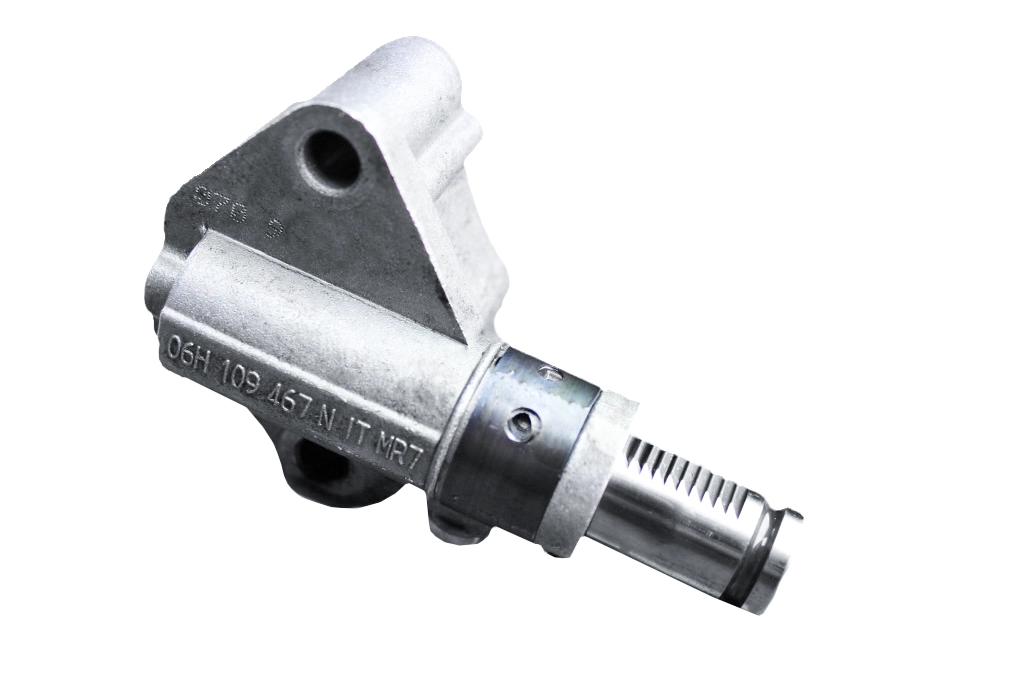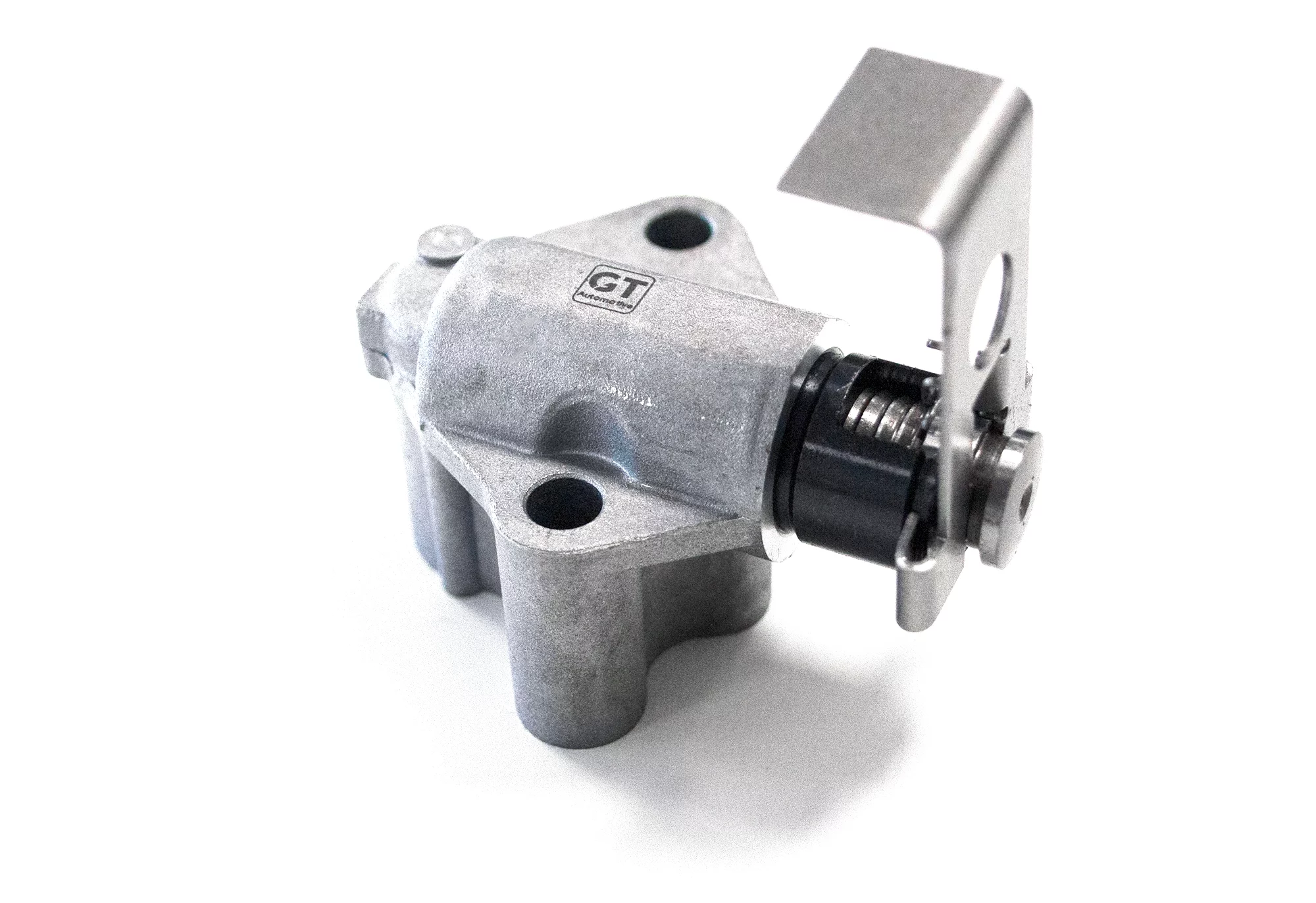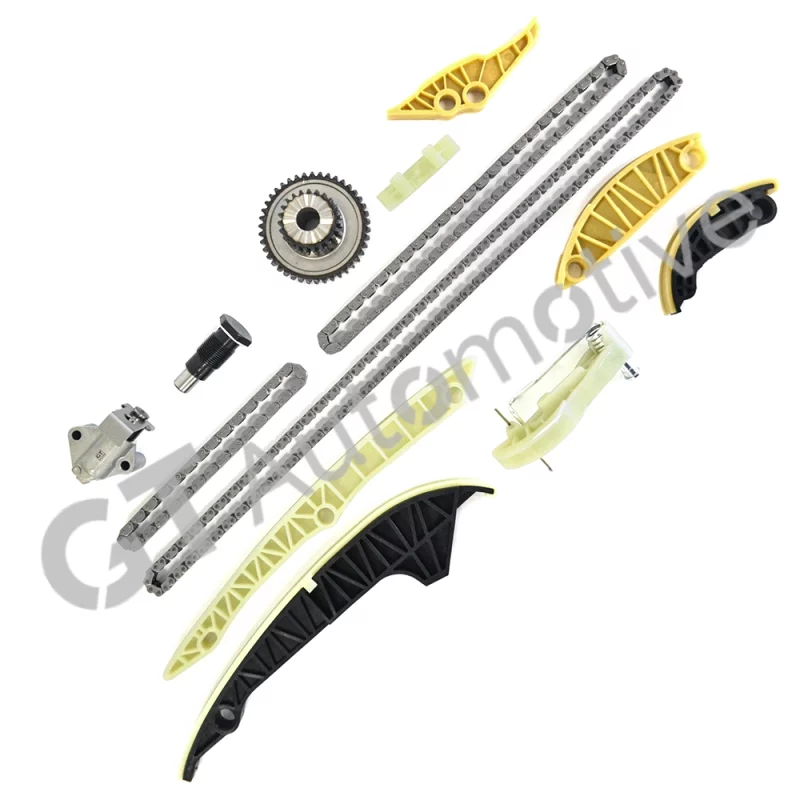The earliest 2.0 TSI/TFSI was introduced in 1993 as part of the EA113 range of engines. This was superseded by the EA888 family of engines. Manufacturing of the evolved 2.0 TSI engine began in 2008 and could be found in many popular applications, including:
- VW – Beetle, EOS, Golf, Jetta, Passat, Scirocco, Sharan, Tiguan
- Audi – A3, A4, A5, A6, Q5, TT
- Seat – Alhambra, Altea, Leon, Toledo
- Skoda – Octavia, Superb, Yeti

The 2.0 TSI went on to be the more popular engine in the range. One of the most prevalent issues, that affected the 1st generation models, was with the timing chain tensioner.
The original tensioner, fitted in 2008-13 models, featured a plastic collar and clip intended to prevent the tensioner piston from retracting. Unfortunately, due to poor quality this can easily pop off, allowing the piston to move freely.

In most cases the oil pressure inside of the tensioner would keep it in place, however when the engine is turned off this oil will leak, removing any pressure and finally allowing the piston arm to retract. As there is no more tension keeping the chain tight, it can come loose from the crankshaft and camshaft sprockets and even skip timing completely.
When this happens the entire engine will become de-synced and this will lead to the pistons and engine valves colliding, causing detrimental damage.
Thankfully, VAG addressed this issue and replaced the original tensioner with an updated design. The new design features a stronger metal collar in the form of a clip which, when fitted, can be replaced to ensure the tensioner stays fully extended. As the old tensioner is very prone to failure, it is essential to have this swapped out for an updated version.

The timing chain cover on this engine features an inspection hole, which allows you to see which version of the tensioner the vehicle has. The old and new tensioners can be identified by the following OE numbers:
- Old Version – 06H-109-467
- New Version – 06K-109-467

